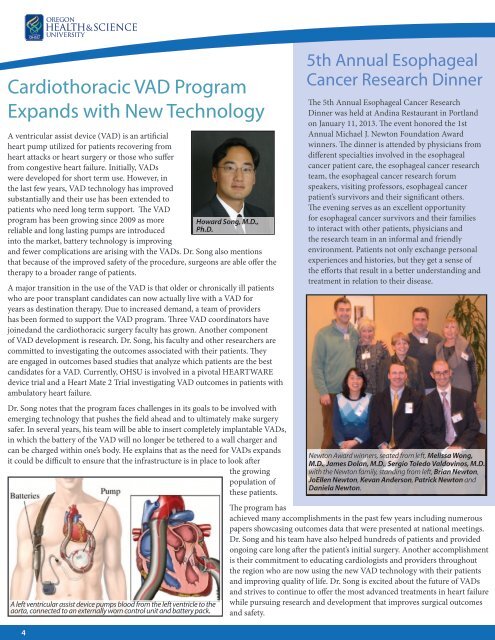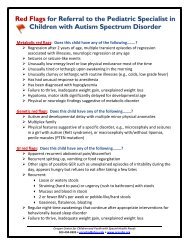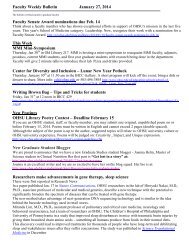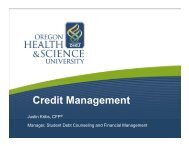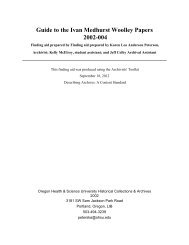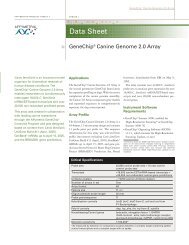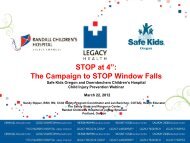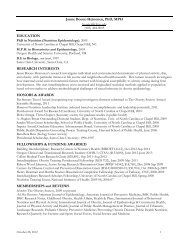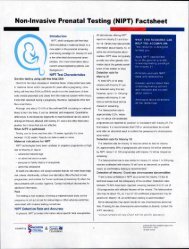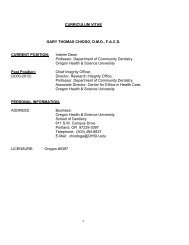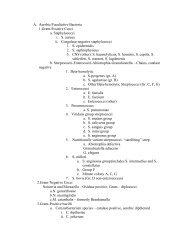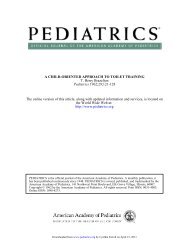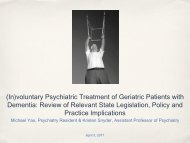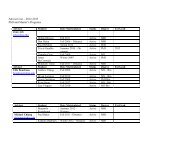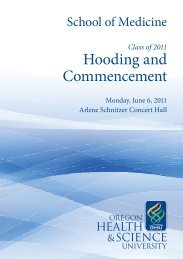April - Oregon Health & Science University
April - Oregon Health & Science University
April - Oregon Health & Science University
You also want an ePaper? Increase the reach of your titles
YUMPU automatically turns print PDFs into web optimized ePapers that Google loves.
Cardiothoracic VAD Program<br />
Expands with New Technology<br />
A ventricular assist device (VAD) is an artificial<br />
heart pump utilized for patients recovering from<br />
heart attacks or heart surgery or those who suffer<br />
from congestive heart failure. Initially, VADs<br />
were developed for short term use. However, in<br />
the last few years, VAD technology has improved<br />
substantially and their use has been extended to<br />
patients who need long term support. The VAD<br />
program has been growing since 2009 as more<br />
reliable and long lasting pumps are introduced<br />
into the market, battery technology is improving<br />
and fewer complications are arising with the VADs. Dr. Song also mentions<br />
that because of the improved safety of the procedure, surgeons are able offer the<br />
therapy to a broader range of patients.<br />
A major transition in the use of the VAD is that older or chronically ill patients<br />
who are poor transplant candidates can now actually live with a VAD for<br />
years as destination therapy. Due to increased demand, a team of providers<br />
has been formed to support the VAD program. Three VAD coordinators have<br />
joinedand the cardiothoracic surgery faculty has grown. Another component<br />
of VAD development is research. Dr. Song, his faculty and other researchers are<br />
committed to investigating the outcomes associated with their patients. They<br />
are engaged in outcomes based studies that analyze which patients are the best<br />
candidates for a VAD. Currently, OHSU is involved in a pivotal HEARTWARE<br />
device trial and a Heart Mate 2 Trial investigating VAD outcomes in patients with<br />
ambulatory heart failure.<br />
Dr. Song notes that the program faces challenges in its goals to be involved with<br />
emerging technology that pushes the field ahead and to ultimately make surgery<br />
safer. In several years, his team will be able to insert completely implantable VADs,<br />
in which the battery of the VAD will no longer be tethered to a wall charger and<br />
can be charged within one’s body. He explains that as the need for VADs expands<br />
it could be difficult to ensure that the infrastructure is in place to look after<br />
the growing<br />
population of<br />
these patients.<br />
A left ventricular assist device pumps blood from the left ventricle to the<br />
aorta, connected to an externally worn control unit and battery pack.<br />
4<br />
Howard Song, M.D.,<br />
Ph.D.<br />
5th Annual Esophageal<br />
Cancer Research Dinner<br />
The 5th Annual Esophageal Cancer Research<br />
Dinner was held at Andina Restaurant in Portland<br />
on January 11, 2013. The event honored the 1st<br />
Annual Michael J. Newton Foundation Award<br />
winners. The dinner is attended by physicians from<br />
different specialties involved in the esophageal<br />
cancer patient care, the esophageal cancer research<br />
team, the esophageal cancer research forum<br />
speakers, visiting professors, esophageal cancer<br />
patient’s survivors and their significant others.<br />
The evening serves as an excellent opportunity<br />
for esophageal cancer survivors and their families<br />
to interact with other patients, physicians and<br />
the research team in an informal and friendly<br />
environment. Patients not only exchange personal<br />
experiences and histories, but they get a sense of<br />
the efforts that result in a better understanding and<br />
treatment in relation to their disease.<br />
Newton Award winners, seated from left, Melissa Wong,<br />
M.D., James Dolan, M.D., Sergio Toledo Valdovinos, M.D.<br />
with the Newton family, standing from left, Brian Newton,<br />
JoEllen Newton, Kevan Anderson, Patrick Newton and<br />
Daniela Newton.<br />
The program has<br />
achieved many accomplishments in the past few years including numerous<br />
papers showcasing outcomes data that were presented at national meetings.<br />
Dr. Song and his team have also helped hundreds of patients and provided<br />
ongoing care long after the patient’s initial surgery. Another accomplishment<br />
is their commitment to educating cardiologists and providers throughout<br />
the region who are now using the new VAD technology with their patients<br />
and improving quality of life. Dr. Song is excited about the future of VADs<br />
and strives to continue to offer the most advanced treatments in heart failure<br />
while pursuing research and development that improves surgical outcomes<br />
and safety.


